What's really behind the Thunder's crunch-time struggles?
The Oklahoma City Thunder got a much-needed win Friday night, one that not only busted their four-game losing streak, but gave them their first win this season (on their seventh try) in a game in which the score was within five points in the final five minutes - what NBA.com defines as a "clutch" scenario.
Even after Friday's victory over the Clippers, the Thunder have been far and away the least clutch team in the NBA. That's how they find themselves with a 5-7 record despite carrying the league's sixth-best net rating. In 25 total clutch minutes this season, they've been outscored by almost 50 points per 100 possessions.
That's a complete reversal from last season, when the Thunder buttered their bread in crunch time, and overperformed their point differential by four wins. Somehow, now that Russell Westbrook actually has a functional supporting cast, they've forgotten how to close. Why? How?
Many have pointed to their torpid late-game offense as the culprit, and it's easy to see why. The Thunder are an isolation-heavy team that relies even more heavily on isolations in close games - in those 25 minutes, they've recorded five assists on 25 made baskets - a tactic that can make one's eyes bleed. And more galling than the lack of ball movement is the lack of player movement. Often, two-thirds of their triumvirate of offensive weapons stand around watching the ball, or spotting up in the corner, while one player works a post-up or launches a step-back jumper.
It's probably best that Westbrook has come down from last season's preposterous 62.3-percent crunch-time usage rate (to a far more reasonable 41.6 percent), but the Thunder still haven't figured out how to weaponize him off the ball. Paul George's playmaking skills had been going almost entirely to waste until the Thunder finally decided to entrust the offense to him Friday night. And late-game Carmelo Anthony can be frustrating, to say the least.
Here's the thing, though: the Thunder's crunch-time offense isn't functionally bad. They're actually scoring more efficiently in the clutch (110.2) than they are overall (103.4), and they're getting a good shot mix, with just 11.8 percent of their attempts coming from the mid-range (compared to 14.4 percent overall), per NBA.com. In a lot of these games (like their losses to the Kings and Trail Blazers), their process has been good, but they just haven't been able to stick shots.
Their crunch-time defense, on the other hand, has been a disaster. That's weird, because the Thunder are a really good defensive team. The second-best in the NBA, to be precise. But they've given up 94 points in their 25 clutch minutes, for a defensive rating of 160, more than 30 points per 100 possessions worse than any other team. You can chalk some of that up to intentional fouls, but that doesn't come close to telling the whole story. The Thunder's crunch-time voodoo last season worked because Westbrook hit insane shots a lot of the time, but also because they locked the hell down on defense. That hasn't been the case so far this year.
The Thunder like to play a hybrid zone that involves a ton of switching and is thus liable to break down when everyone isn't hyper-alert and on a string. For whatever reason, the Thunder have just defended worse in the clutch. They haven't been as crisp, or aware, and they've had a higher frequency of breakdowns. Their opponents are shooting 59 percent from the field, and almost all of those shots are coming at the rim or from beyond the arc.
The fact that they're only rebounding 58 percent of opponent misses is (mostly) a fluke, but it's also happening in part because of those glitches in focus and effort (and in some cases, scheme). Nikola Jokic's backbreaking put-back Thursday night came about because Westbrook didn't even try to fight through this screen, and then didn't even try to get rebounding position.
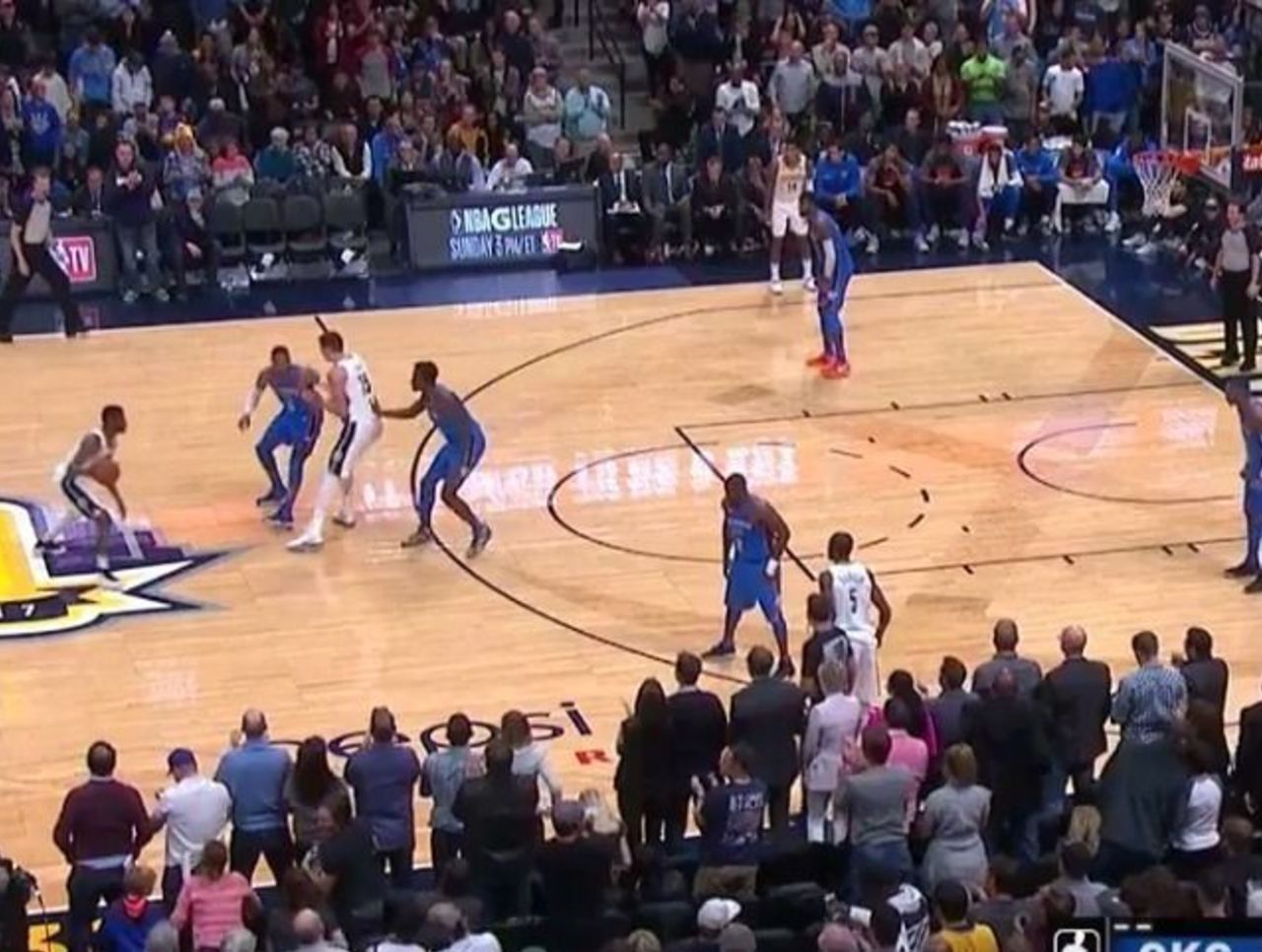
Anthony has been a particularly egregious late-game defensive chainbreaker, with a penchant for becoming lazy and/or uncommunicative. Here's Kings guard Buddy Hield getting himself a wide-open three when Anthony neither notified George of Justin Jackson's flare screen nor made any effort to help.
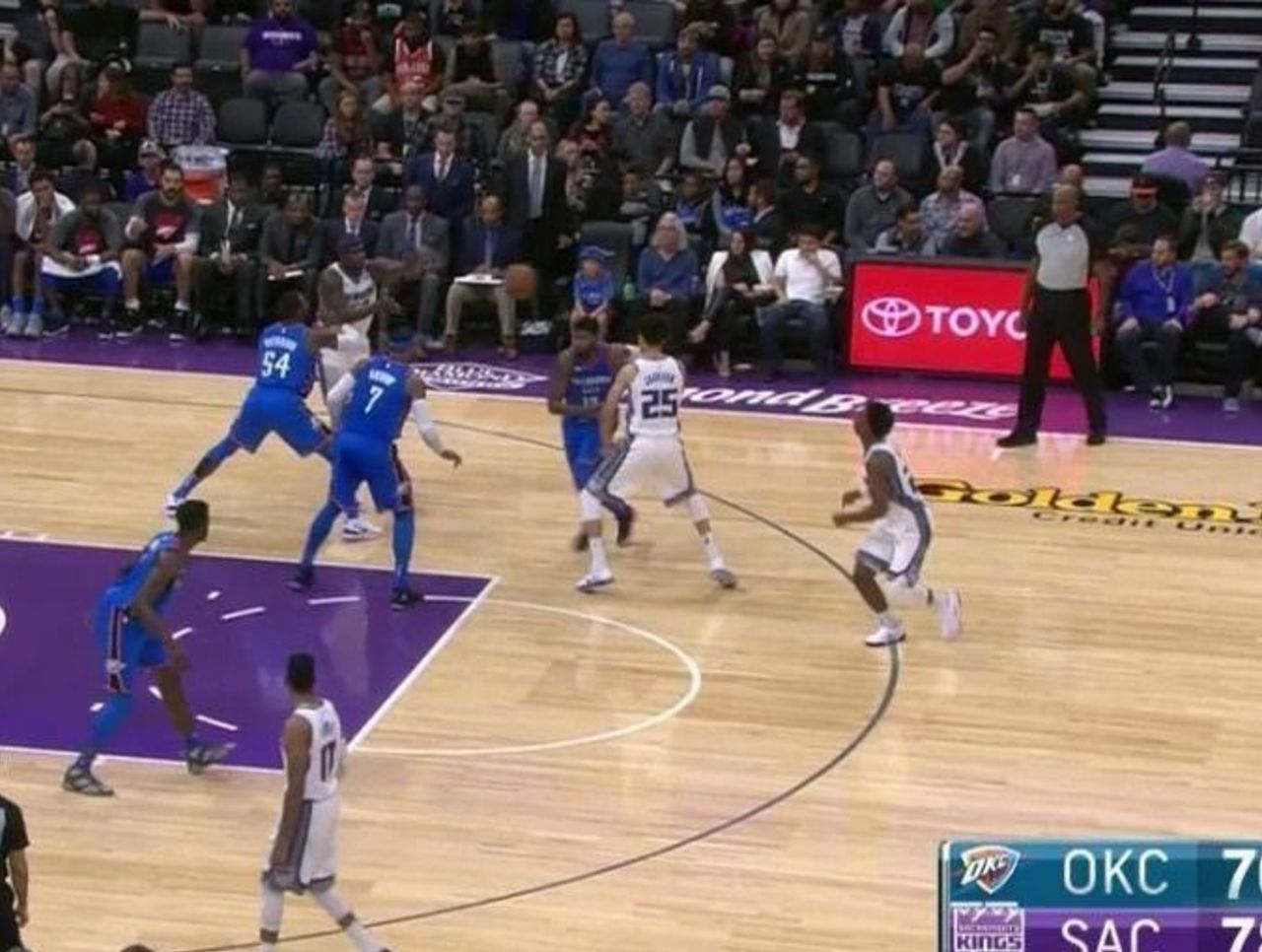
About two minutes later, Anthony was caught napping again, getting back-cut into oblivion by De'Aaron Fox, which forced Steven Adams to help and led to a Zach Randolph layup.
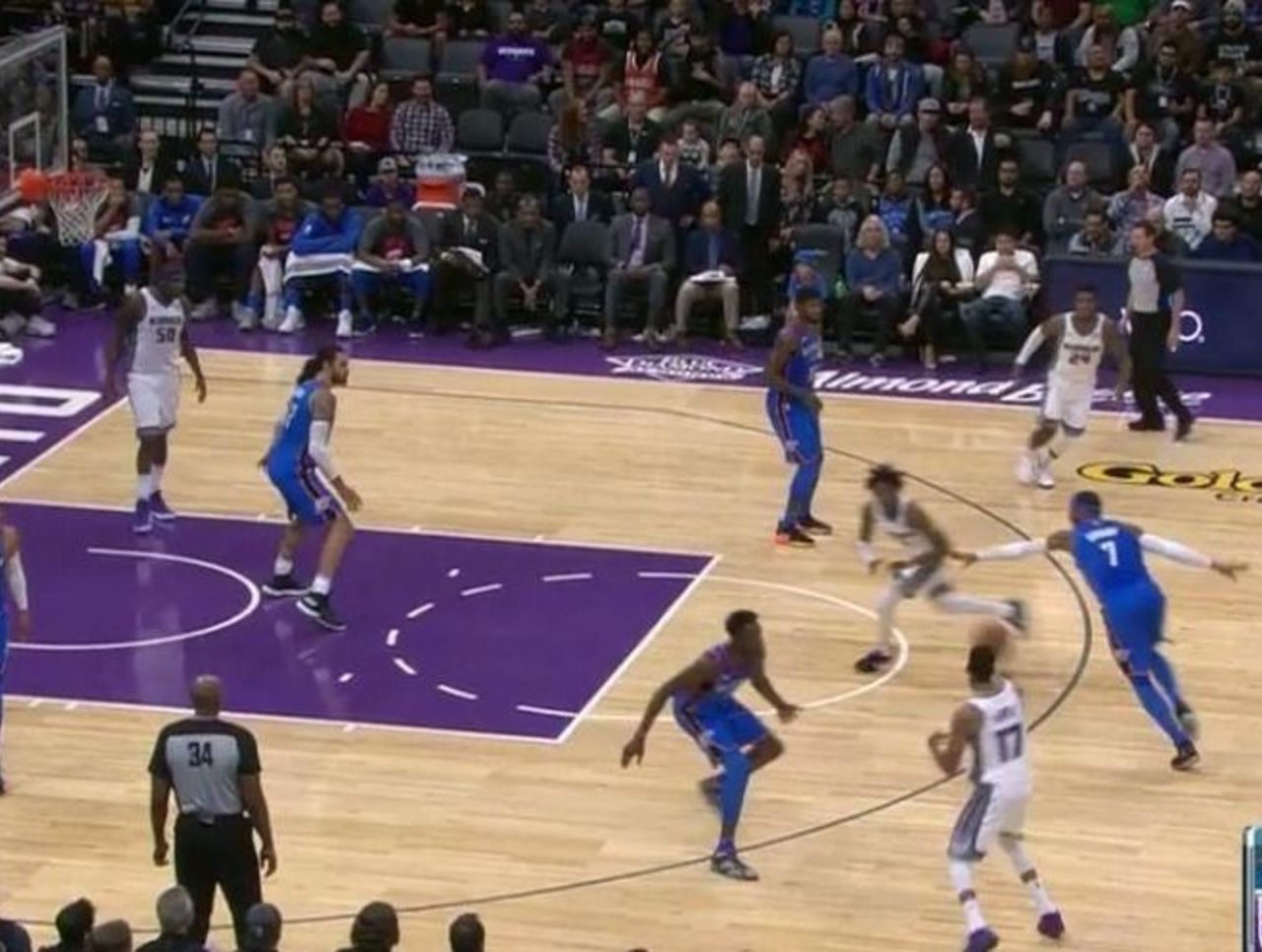
Westbrook has had his own issues with defensive focus in crunch time. On a crucial possession in that same Kings game, he completely spaced out while ball-watching and lost Jackson on a back cut for a layup.
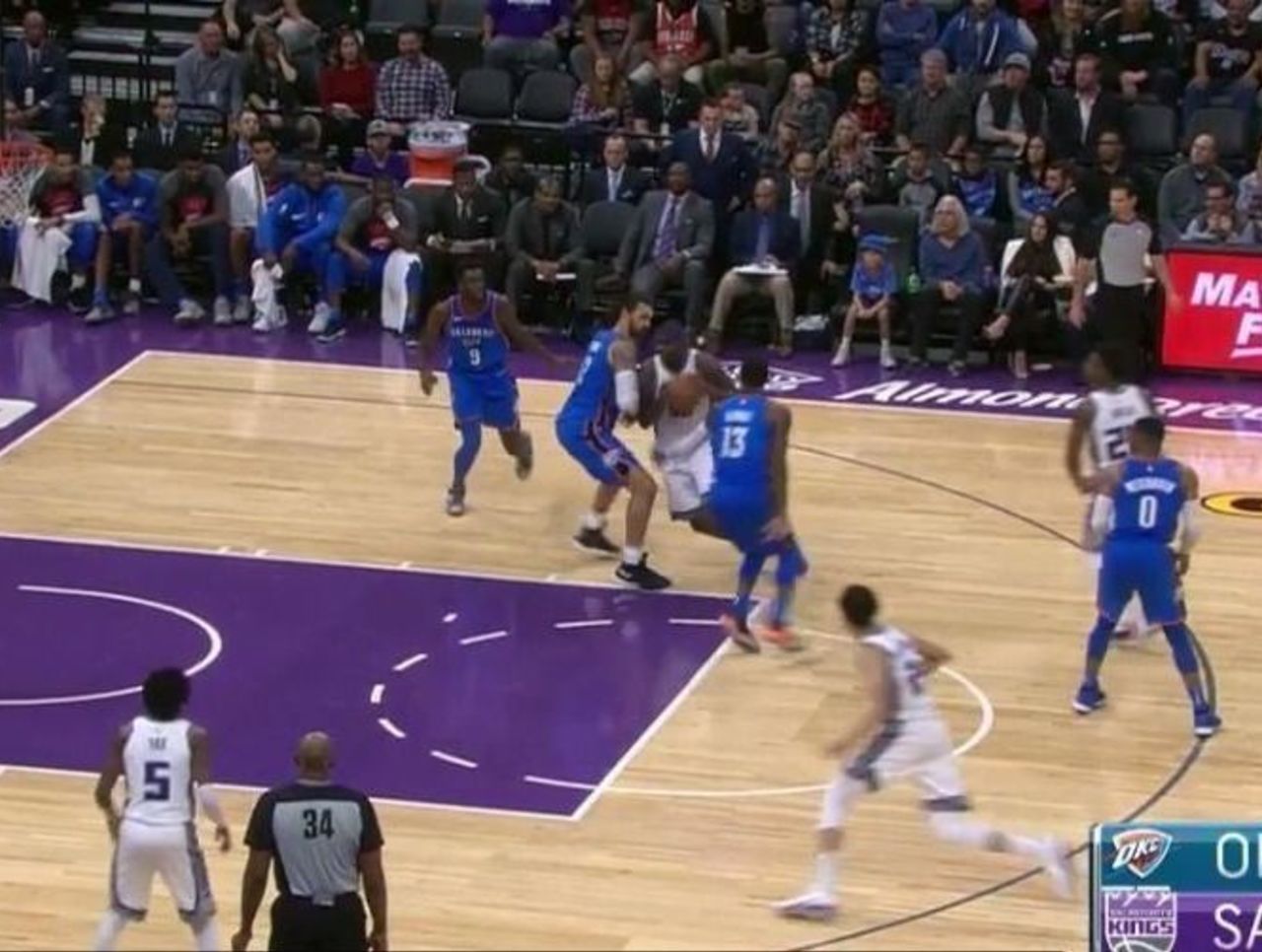
Against the Blazers, he surrendered basically the game-clinching 3-ball to C.J. McCollum when he decided to collapse on Damian Lillard, even though Lillard was driving into three Thunder players and McCollum is a 52.2-percent 3-point shooter.
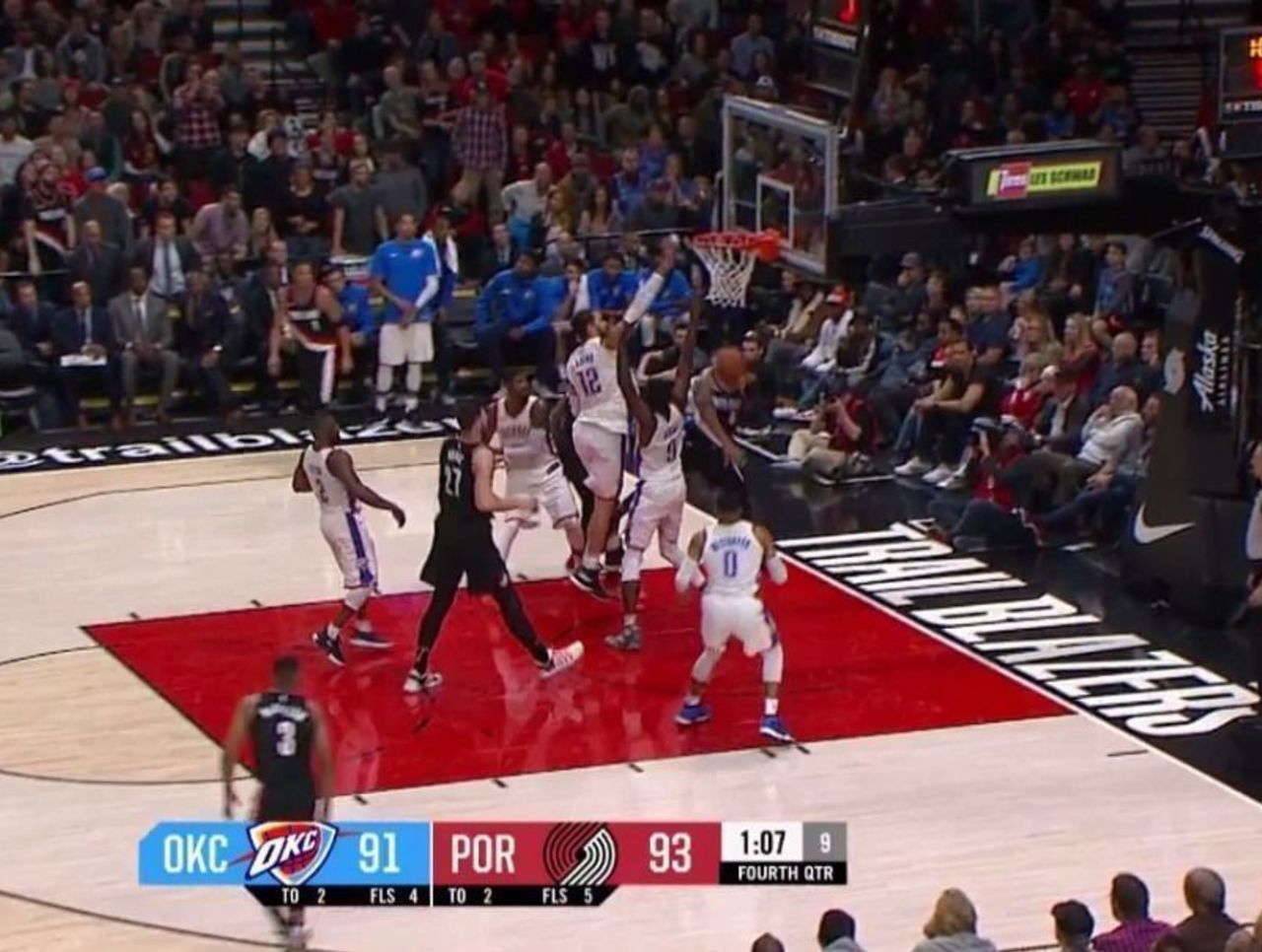
Against the Celtics, he completely flubbed a switch on a small-small pick-and-roll, after Marcus Smart squashed Andre Roberson and sprung Kyrie Irving toward the hoop. Again Adams had to help, this time off Al Horford in the corner, to predictably poor results.
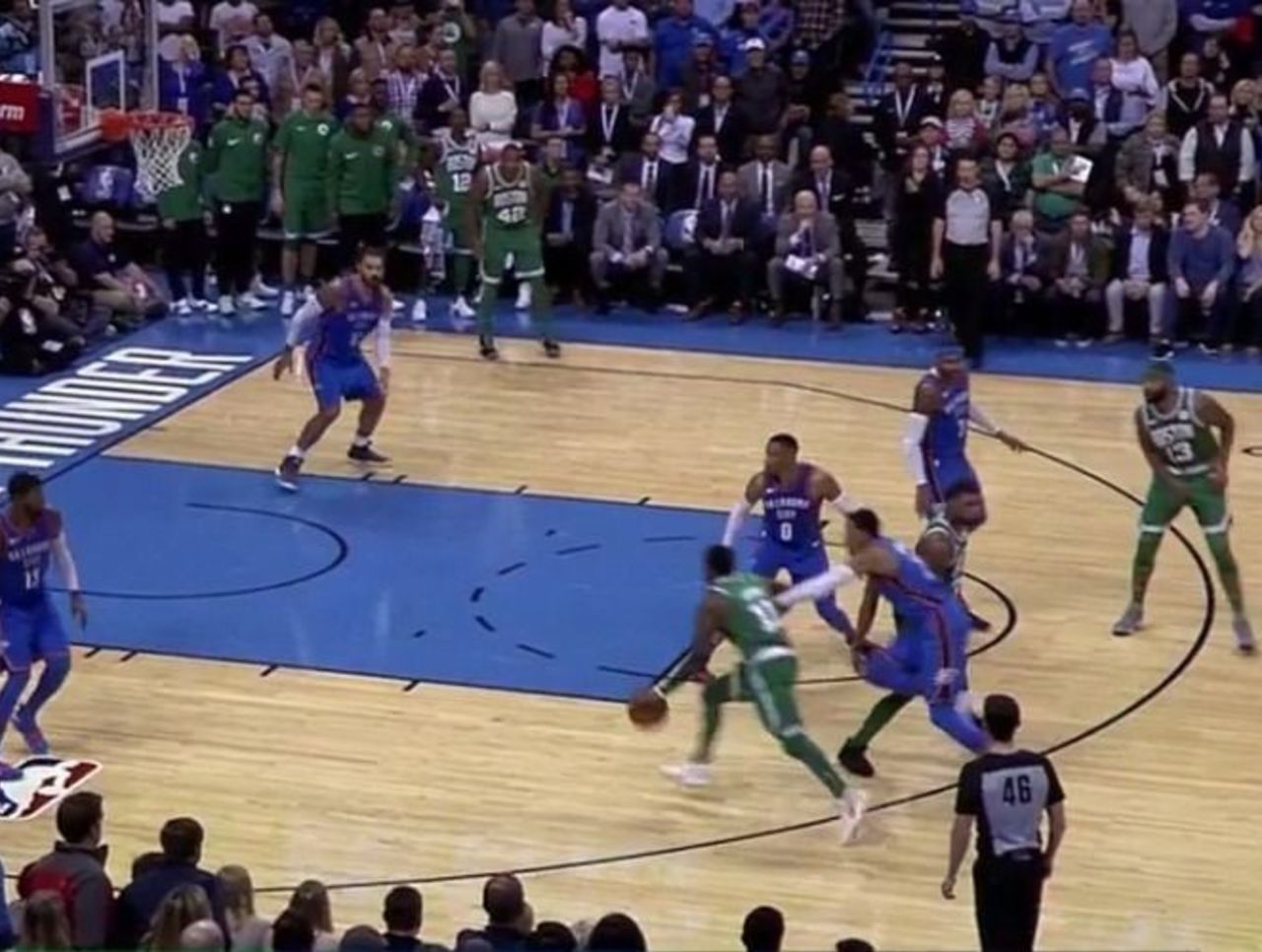
Those two have been the worst offenders, but certainly not the only ones. Everyone in the Thunder's crunch-time rotation has been culpable at some point, with the possible exception of George. Even Adams, as good as he is most of the time, has looked completely gassed at the end of some games, offering soft hedges, slow recoveries, and diminished lateral quicks. Teams have responded by attacking him repeatedly in the pick-and-roll. Lillard toasted him. Irving did too.
It would make sense to expect that the Thunder's oft-janky offense was contributing to their poor crunch-time defense, but it's been closer to the other way around. Their late-game defense has put them in precarious holes that they've had to try to shoot their way out of with early-clock gambits and long-range heaves.
The future won't necessarily bring more of the same. This is all far more descriptive than predictive, and the 43 minutes of excellent defense the Thunder have been playing each game tell us far more than the five minutes of bad defense that have often followed. With Enes Kanter gone, the Thunder may not return to being the glass-cleaning machine they were last year - when they had the league's best crunch-time rebounding rate - but they also won't continue to get obliterated to this extent on the offensive boards.
There are real issues here and they need to be addressed. The Thunder can't just expect these things to eventually regress to the mean, the way they might with an aberrant streak of cold shooting. They'll need to dig in and work to find solutions. They're quite clearly capable of defending at a very high level. It's just a question of sustaining it for 48 minutes.